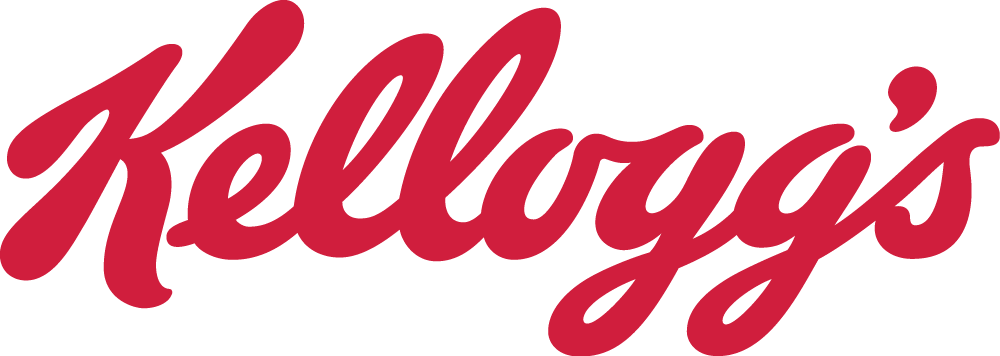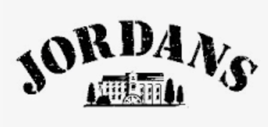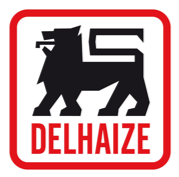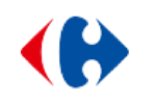Synthèse
The global breakfast cereal market has been growing steadily, driven largely by consumer health awareness and the popularity of on-the-go meal options. With an estimated market value of 29.9 billion euros and a forecast CAGR of 2.9% from 2017 to 2023, the industry has seen a significant shift towards healthier products such as muesli and granola. In Belgium, market growth remained modest, with a CAGR of 1.1%, but is expected to accelerate to a CAGR of 2.5% between 2019 and 2023, with sales of 176.3 million euros.
The market is highly concentrated, with major players like Kellogg's losing market share to smaller brands, private labels and organic alternatives. Belgian consumers are increasingly looking for organic breakfast options, although availability and price are often limited. The market depended mainly on traditional grocery stores for distribution, with 96.2% of products sold in-store and 3.8% online. Regulatory frameworks in Belgium and the EU continued to maintain strict controls on food products, with labeling schemes such as the organic label and Nutri-Score influencing consumers' purchasing decisions. The segment was dominated by leaders such as Kellogg's with sales of 10 billion euros, Nestlé with 89.2 billion Swiss francs, and Jordan's with £180 million, while dedelhaize, Carrefour and Colruyt reported sales of 62.8 billion euros, 78.9 billion euros and 9.03 billion euros respectively.
Dynamics and demand in the Belgian breakfast cereals market
The Belgian breakfast cereals market, which includes nutritious options such as wheat, oats and corn with a variety of flavors, has matured with a mix of mainstays and emerging brands vying for consumers' attention. Major players like Kellogg's dominate the scene, holding over 40% of market share. However, the landscape is changing as Belgian consumers increasingly turn to organic and perceived healthier options such as granola and muesli, nibbling away at the dominance of traditional market leaders. This shift in preference is partly due to growing health awareness among consumers, and the willingness to pay more for premium products should accelerate market growth in the years ahead.
Despite these optimistic trends, the sector faces a major challenge: Belgians skip breakfast more often than their European counterparts. According to one study, only three quarters of Belgians regularly eat the first meal of the day, which is quite low compared to France and Italy, where over 90% of inhabitants eat breakfast every day. The main reasons given for not eating breakfast are lack of appetite and time constraints, underlining the demand for quick and convenient meal options. Emerging economies are driving the global breakfast cereal market, which was valued at nearly 30 billion euros, with projections suggesting steady growth over the next decade. This increase is fuelled by lifestyle transformations induced by urbanization and an expanding middle class looking for convenient meal solutions.
Trade figures reflect Belgium's strong presence on international markets, with exports up by over 60% in the last five years, outstripping imports which have also risen by over 50%. Belgium's main trading partners are neighboring France and the Netherlands, as well as Germany and the UK. In terms of product composition, children's cereals remain sweet, although recent reactions to criticism of high sugar content have led to recipe reforms, aimed at reducing sugar and salt in several brands. Breakfast options for adults are gradually shifting towards mueslis, granolas and oats, in response to the pro-health trend.
Main competitors in breakfast cereals In the breakfast cereals sector, several big names stand out, each with its own footprint in the market. This eclectic group of companies ranges from specialist cereal manufacturers to multi-purpose multinationals, as well as the influential retail chains that help put these products on consumers' tables.
- Kellogg's: The pioneering titan Recognized as a pioneering force in the breakfast cereal industry, Kellogg's has etched its name its name in the history books with a wide range of cereals that have delighted generations around the world. The brand's distinctive red logo is synonymous with breakfast time, with a product range that caters for a wide variety of palates and nutritional needs, although it has been facing increasing competition of late.
- Nestlé: a global giant with a local touch As a giant in the global food and beverage landscape, Nestlé's venture into breakfast cereals reflects its commitment to adaptability and nutritional innovation. With an extensive portfolio that goes beyond simple cereals, Nestlé stays in step with changing consumer trends, striking a balance between pleasure and health consciousness in its cereal offerings.
- Jordans: the health challenge Jordans has made a name for itself with products that emphasize natural ingredients and healthy eating, carving out a niche among those looking for more than just a tasty breakfast. Its success reflects a shift in consumer preferences, with more and more people turning to products that combine convenience and health benefits, such as granola and muesli.
- Delhaize: The gateway to breakfast choices This major retailer not only offers a varied selection of leading cereal and specialty brands, but also contributes to the competitive landscape with its own cereal brands. Delhaize's shelves testify to the retailer's adaptability and customer-centric approach to the breakfast segment, offering both upscale and affordable alternatives to cater to different market segments.
- Carrefour: The consumer-focused retailer Carrefour's extensive network, with its global reach into local communities, ensures that a variety of breakfast cereals are always at the consumer's fingertips. By focusing on product variety and accessibility, the retailer plays a crucial role in the distribution and availability of both conventional and health-focused cereal options.
- Colruyt: the value-driven competitor Renowned for its pragmatic approach to retailing, Colruyt boasts a strong market presence thanks to its focus on value for money. The retailer's intelligent positioning enables it to capture a substantial segment of the market.
à la compréhension de ce marché
Détail du contenu
 Informations
Informations
- Nombre de pages : 30 pages
- Format : Version digitale et PDF
- Dernière mise à jour : 06/12/2021
 Sommaire et extraits
Sommaire et extraits
1 Market overview
1.1 Market definition and scope
Breakfast cereals are an agglomeration of nutrients, mainly cereals such as wheat, oats or corn, with natural or artificial flavoring and sugar.
With a plethora of products on offer, the breakfast cereal industry is dominated by very large players, such as Kellogg's, particularly in Belgium, where the group accounts for over 40% of the market. Over the past few years, however, new players have emerged on the market, taking market share from the two leading companies in Belgium, thanks in particular to strong demand for products labeled organic or perceived as healthier, such as granola or muesli.
However, the market has to contend with a growing lack of interest in breakfast, which is increasingly being missed by Belgians.
The following study includes ready-to-eat breakfast cereals, as well as derived products such as cereal bars.
1.2 Sustained global growth
Global sales of the breakfast cereals market amounted to €**.* billion in ****. Industry experts anticipate an annual CAGR of *.*% for the ****-**** period.
Breakfast cereals market value World, **** - ****, € billion CAGR: +*.*% Source: ****
The market is being driven by emerging economies, where there is a paradigm shift in customers' purchasing behavior and eating ...
1.3 The Belgian market is growing slowly, but is set to accelerate
With estimated sales of €***.* million in ****, the market posted steady growth of *.*% over the ****-**** period.
Breakfast cereals market sales Belgium, **** - *****, in millions of euros CAGR ****-****: +*.*% CAGR ****-****: +*.*% Source: ****
In a highly concentrated market where a handful of players compete for consumers with a multitude of brands, the slow ...
1.4 Strong growth in trade
Foreign trade Belgium, ****-****, in millions of euros Source: ****
The code used for this section may include more than just breakfast cereals. It is code ****: Cereal products obtained by puffing or roasting (***), pre-cooked or otherwise prepared. [***]
While the coverage rate (***), there has been a sharp increase in the amounts in question. ...
2 Demand analysis
2.1 Belgians eat less breakfast than the European average
According to the independent survey carried out by Spark on behalf of Kellogg's, Belgians and their children eat breakfast less often than other Europeans.
Share of individuals eating breakfast daily Europe, ****, % (***) Source: ****
Among the * countries surveyed, Belgium ranks as the country with the second lowest breakfast consumption, after Spain. In fact, ...
2.2 Consumption mainly takes place in the home, but varies according to several factors
Place of consumption
Breakfast is mainly eaten at home. Belgians were still particularly reluctant to eat breakfast outside the home.
Location of breakfast consumption Belgium, ****, % Source: ****
Age, but also gender and location, influence breakfast consumption
Consumption is primarily age-related. During adolescence, breakfast consumption becomes less regular, as the graph below shows. ...
2.3 Trend: Towards healthier products
Health concerns shape new eating habits
As more and more Belgians become health-conscious, cereal consumption is shifting towards healthier products.
Muesli and granola are benefiting most from this health trend, as the natural image of muesli and granola is bringing new, health-conscious consumers to the region.in this sense, muesli and ...
3 Market structure
3.1 Kellogg: a leader in decline
Source: ****
Changes in the market shares of the segment's main players show a trend towards deconcentration, with the smaller players gaining more ground.
For example, Kellogg Benelux, which accounted for almost half the market in ****, now represents "only" **.*% in ****. Similarly, Nestlé Belgilux has fallen from **.*% to **.*% in * years. Conversely, all the ...
3.2 A market in the hands of a small number of companies
Leading breakfast cereal companies Belgium, ****, in Source: ****
The Herfindahl-Hirschmann index calculated for this breakfast cereals sector in Belgium is **** points. It is obtained by summing the square of the market shares (***) of all the companies in the sector in question. It thus provides a relevant indicator of market concentration according to ...
3.3 Production of Belgian organic cereals intensifies
Cereal farmland Belgium, **** - ****, in hectares Source: ****
Between **** and ****, the area of land devoted to organic cereal farming in Belgium increased steadily.
From **** to ****, the area of land cultivated with organic cereals in Belgium had increased by around *,*** hectares, reaching a total of **,*** hectares. This increase is part of the general ...
3.4 Market distribution channels
According to Euromonitor, **.*% of breakfast cereals were sold in conventional grocery stores, supermarkets and hypermarkets, with the remainder sold online (***), the latter percentage up *.* points on ****.
Source: ****
4 Offer analysis
4.1 Numerous brands vie for market share
Top breakfast cereal brands Belgium, ****, in Source: ****
There is a wide diversity of brands, with a very strong presence of private labels: Colruyt, Carrefour, Delhaize and other private labels together accounted for **.*% of the market in ****. Brand development has therefore been achieved at the expense of the historical players, in particular ...
4.2 Product typology, composition and substitutes
Product typology
The different varieties of breakfast cereals can be divided into different sub-segments. First, there are cereals for children, which are generally very sweet. [***]
Cereals for adults include those based on muesli, a mixture of oats and other ingredients such as dried fruit or seeds. These are stagnating in terms ...
4.3 Supply trends: New products adapted to new consumer demands
New perspectives
Although the health trend is shifting the adult breakfast cereal offer towards more muesli, granola and oats, at the expense of flakes and other breakfast cereals, children's breakfast cereals have remained relatively unchanged, with the exception of some recipe improvements
Breakfast cereals for children have remained relatively unchanged, with ...
5 Regulations
5.1 World Customs Nomenclature and Harmonized System
The Harmonized System is an international nomenclature for product classification. It enables participating countries to classify traded goods on a common basis for customs purposes. At international level, the Harmonized System (***) for the classification of goods is a six-digit code system. [***]
The HS comprises around *,*** item/product descriptions, which appear as ...
5.2 Food remains tightly controlled in Belgium
Food can be contaminated or harmful to health when packaging displays misleading information. Aware of these risks, the Federal Public Health Service explains that, in line with European regulations, it has put in place a number of rules to provide a regulatory framework for the food industry. [***]
At European level, regulation ...
5.3 Organic label and nutri-score
For a brand to obtain the Bio label on one of its products, it must meet the following conditions:
at least **% of the product's components come from organic farming in accordance with EU regulations; The product complies with the rules of the official inspection system; The product comes directly from the ...
6 Positioning the players
6.1 Segmentation
- Kellogg's
- Jordans
- Ahold Delhaize
- Carrefour Belgique
- Colruyt
- Nestlé Groupe
 Liste des graphiques
Liste des graphiques
- Valeur du marché des céréales de petit déjeuner
- Chiffre d'affaires du marché des céréales de petit déjeuner
- Principaux pays destinataires des exportations
- Principaux pays d'origine des importations
- Commerce extérieur
Toutes nos études sont disponible en ligne et en PDF
Nous vous proposons de consulter un exemple de notre travail d'étude sur un autre marché !
Dernières actualités
Entreprises citées dans cette étude
Cette étude contient un panorama complet des entreprises du marché avec les derniers chiffres et actualités de chaque entreprise :
 Choisir cette étude c'est :
Choisir cette étude c'est :
Accéder à plus de 35 heures de travail
Nos études sont le résultat de plus de 35 heures de recherches et d'analyses. Utiliser nos études vous permet de consacrer plus de temps et de valeur ajoutée à vos projets.
Profiter de 6 années d'expérience et de plus de 1500 études sectorielles déjà produites
Notre expertise nous permet de produire des études complètes dans tous les secteurs, y compris des marchés de niche ou naissants.
Notre savoir-faire et notre méthodologie nous permet de produire des études avec un rapport qualité-prix unique
Accéder à plusieurs milliers d'articles et données payantes
Businesscoot a accès à l'ensemble de la presse économique payante ainsi qu'à des bases de données exclusives pour réaliser ses études de marché (+ 30 000 articles et sources privées).
Afin d'enrichir nos études, nos analystes utilisent également des indicateurs web (semrush, trends…) pour identifier les tendances sur un marché et les stratégies des entreprises. (Consulter nos sources payantes)
Un accompagnement garanti après votre achat
Une équipe dédiée au service après-vente, pour vous garantir un niveau de satisfaction élevé. (+33) 9 70 46 55 00
Un format digital pensé pour nos utilisateurs
Vous accédez à un PDF mais aussi à une version digitale pensée pour nos clients. Cette version vous permet d’accéder aux sources, aux données au format Excel et aux graphiques. Le contenu de l'étude peut ainsi être facilement récupéré et adapté pour vos supports.
 Nos offres :
Nos offres :
the breakfast cereal market | Belgium
- Quels sont les chiffres sur la taille et la croissance du marché ?
- Quels leviers tirent la croissance du marché et leur évolution ?
- Quel est le positionnement des entreprises sur la chaine de valeur ?
- Comment se différencient les entreprises du marché ?
- Données issues de plusieurs dizaines de bases de données





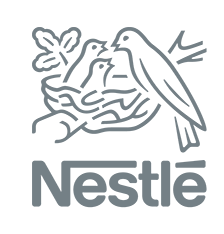 Nestlé cède ses petits pots pour bébé Natur à FNB - 06/02/2024
Nestlé cède ses petits pots pour bébé Natur à FNB - 06/02/2024
 Colruyt reprend 57 magasins Match et Smatch en Belgique - 27/09/2023
Colruyt reprend 57 magasins Match et Smatch en Belgique - 27/09/2023
